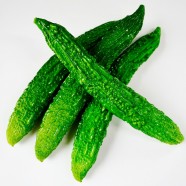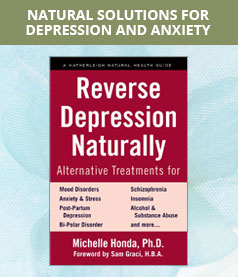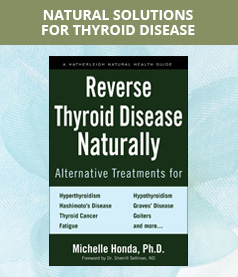
Bitter Melon has huge benefits as an anti-cancer agent and lowering blood sugar of those suffering with diabetes. It should come as no surprise to learn Bitter Melon has ‘super food’ nutritional qualities. This Asian fruit also known as ‘karela’ has been renowned for centuries among various Asian cultures. And now we see researchers discovering important attributes to fight and ward off devastating diseases like cancer and diabetes. This article will mainly concentrate on cancer benefits but first I would like to touch on its diabetic assistance. Further into this piece you will also learn of other benefits bitter melon possesses.
My Professional Experience with Bitter Melon
Using bitter melon as a cancer agent is new to me, but not when using it to reverse diabetic conditions. Fresh bitter melon juice is an incredible remedy for quickly lowering blood sugar levels – even those on insulin. Bitter melon impacts diabetic medications, including insulin, showing an immediate effect on all patients I have incorporated this remedy into their protocol. Regulating blood sugar optimally does involve other key nutrients like chromium and omega 3 fatty acids and more, but 2 ounces of freshly made bitter melon juice ingested in the morning and before dinner, significantly lowered blood sugar levels. Patients then administer their medication or insulin according to their new levels and so on. There are also other herbal medicines which can accompany this protocol for even more benefit.
Note: Once sugar levels are normalized, and the need for oral medication is no longer required, the patient controls their sugar levels with diet and a few other supportative supplements geared for optimal health and body restoration/function.
Cancer
Bitter melon extract used in animal studies, resulted in a 50% tumor growth reduction. Of this study, human trials have yet to be conducted but the position shows potential, Published in Cell Communication and Signaling.
Recent Supportative Cancer Study
A professor of pathology, Ratna Ray, Ph.D. at Saint Louis University, conducted an in-depth study evaluating the anti-cancer properties of bitter melon (karela). Sited in her 2018 paper, Dr. Ray demonstrated how ‘karela’ stopped the duplication of oral squamous cell carcinoma in mice. These findings were published in ‘Cancer Prevention Research’ becoming the journal’s most cited article of that year.
It only makes sense to incorporate foods and natural products into our diets as preventive medicine. After all, it is through natural substances/products that derive the development of most drugs.
In Dr. Ray’s earlier research, she noted that karela extract appears to combat cancer by modulating the immune response. Bitter melon stimulated endoplasmic reticulum and oxidative stress mediated cell death in oral cancer, as well as inhibit glycolysis and lipid metabolism.
The fact that karela (bitter melon) can modulate both glucose (cancers favorite food is sugar), and lipid metabolism, suggests its future as a superstar in treating oral cancers. Bitter melon like other super foods, targets cancer cells – ‘not healthy cells’. Karela extract has not demonstrated any major side effects in humans or animals, resulting in little to no risk to patients who choose to include this remarkable fruit to their nutritional regime.
Bitter Melon Enhances Natural Killer Cells
The effectiveness of our body’s ‘natural killer’ cells was enhanced by bitter melon extract. Further studies by Dr. Ray showed that karela appeared to induce apoptosis (the death of cells which occurs as a normal and controlled part of an organism’s growth or development) in ‘breast cancer cells’, bringing to an end multiplication and metastasis.
Ratna Ray continues to add,
“To our knowledge, this is the first report describing the effect of bitter melon extract on cancer cells … Our result was encouraging. We have shown that bitter melon extract significantly induced death in breast cancer cells and decreased their growth and spread. Cancer prevention by the use of naturally occurring dietary substances is considered a practical approach to reduce the ever-increasing incidence of cancer. Studying a high-risk breast cancer population where bitter melon is taken as a dietary product will be an important area of future research.”
Other areas of cancer benefit noted by Dr. Ray were chemoprevention of prostate cancers – , looking very promising for prostate cancer. Diet integrating bitter melon could largely impact prostate cancer in men.
Other Nutritional Benefits
Bitter melon has been utilized for centuries in Ayurvedic medicine in the treatment of diabetes and related symptomology. As science further investigates, we are discovering the fruit that resembles a disoriented cucumber, has so much more to offer. It is very high in Vitamin C, providing 90% of the RDA and 50% RDA of Vitamin A as well as being an excellent source of vitamins B1, B2, and B3, C, magnesium, folate, zinc, phosphorus, manganese, and eight percent fiber. Like its name indicates, bitter melon does have a very bitter taste.
Due to bitter melons high concentration of vitamin C, it works as a tremendous immune booster. As many have come to know, vitamin C is our main antioxidant impacting our blood and body’s cells. Its main benefit is in its protection against free radicals and reactive oxygen species all the while offering protection of fats, proteins, carbohydrates, DNA and RNA. Examples of damage to our cells can be generated on a daily basis, resulting from pollutants, exposure to toxins, cigarette smoke and chemotherapy drugs to name a few.
Help with Weight Loss
As many of can attest to, reducing excess belly fat seems to be one of the hardest areas to eliminate. A 2012 study has shown bitter melon to positively reduce excess belly fat, published in BMC’s Nutrition Journal. Over the course of 7 weeks, subjects consumed bitter melon extract daily and lost on average one half inch from their waste size.
Bitter Melon Lowers Blood Sugar
Another study supporting the benefits of bitter melon yet again in the area of diabetes can be found in the Journal of Medicinal Food (2018) – 3-month study. Participants took 2,000 mg of bitter melon each day, resulting in decreased blood sugar and hemoglobin A1c.
Where to Buy
Many Asian markets sell bitter melon as do very large grocery stores. I have purchased both Korean bitter melon which is much smaller with spiny spikes and the karela variety at both venues. And you can grow your own, seeds can be purchased online.
Dr. Ray considers bitter melon to be one of the healthiest foods we can eat, stating, “Some people eat an apple a day. I’d rather eat a bitter melon a day.”
Copyright © 2020 – All Rights Reserved – Michelle Honda Ph.D.
Announcement
Look for my new forthcoming books “Reverse Depression Naturally” (Spring 2020) “Reverse Inflammation Naturally” (May 31, 2017) “Reverse Thyroid Diseases Naturally” (June 2018) “Reverse Alzheimers/Dementia Naturally” (Nov.2018) “Reverse Heart Disease Naturally” (Jan.31, 2017) and “Reverse Gut Diseases Naturally Nov. 2016
Where to Purchase:
Reverse Gut Diseases Naturally Nov. 2016
Reverse Heart Disease Naturally Jan. 2017
Reverse Inflammation Naturally May 2017
Reverse Thyroid Disease Naturally June 28/2018
Reverse Alzheimers Disease Naturally Nov. 2018
Reverse Depression Naturally Spring 2020
Hatherleigh Press Page Buy Book RGDN
Local Book Stores in US and Canada
Disclaimer
While close attention was given to the accuracy of information in this article, the author accepts neither responsibility nor liability to any person with respect to injury, damage, loss or any circumstances involving alleged causes directly or indirectly related to the information in this article. The sole purpose is to educate and broaden ones awareness. This information is not meant to replace medical advice or services provided by a health care professional.













Follow Us!